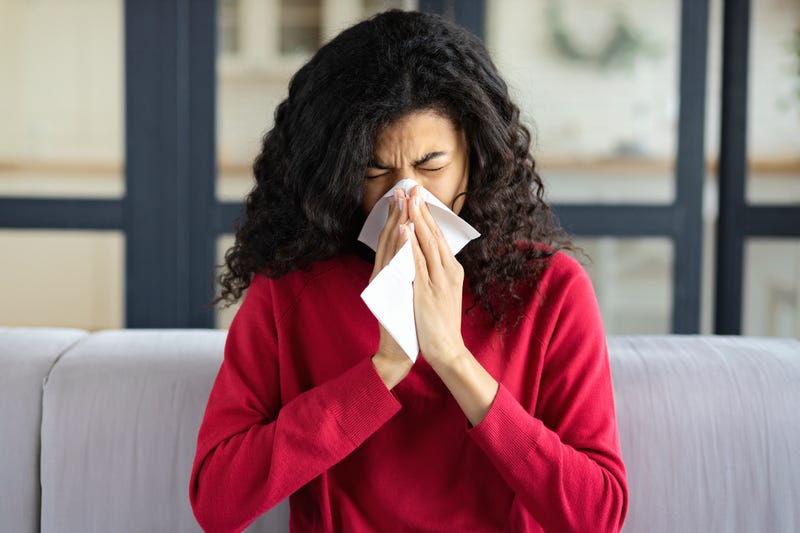
As the U.S. deals with rising omicron variant COVID-19 cases and a shortage of at-home tests, what are the symptoms that actually indicate you should buy one?
According to medical professionals, the symptoms associated with omicron are actually very close to that of a traditional seasonal cold, making even a run-of-the-mill runny nose cause for concern.
Common omicron symptoms can include headache, runny nose, sneezing, sore throat and fatigue. Loss of smell has also been reported.
Dr. Angelique Coetzee – a doctor from South Africa, where the variant was first identified – said that omicron causes “very mild symptoms” in an interview last month with the BBC.
Professor Tim Spector, who helps run the ZOE COVID symptoms app and study, told The Independent omicron’s similarity to the common cold make testing more important to prevent the virus from spreading.
“Omicron is probably more, much more similar to the mild variants we’re seeing in people who have been vaccinated with Delta than anything else,” he said.
Christina Marriott, chief executive of the Royal Society for Public Health, also told The Independent that cold-like symptoms have been a sign of the omicron variant for fully vaccinated people.
“It’s important for people who’ve been fully vaccinated to stay vigilant for cold-like symptoms and get tested if they’re living or working around people who are at greater risk from the disease,” Marriott said.
Although omicron’s symptoms are mild, it appears the variant is still potentially fatal. So far at least one death in the U.S. has been connected to the variant, an unvaccinated man in his 50s. According to the White House, vaccinated individuals who get omicron will most likely have more mild cases.
To address the shortage of at-home tests, the White House Tuesday announced plans to purchase half a billion free at-home tests. However, these tests are not expected to be available until January.
According to World Health Organization Director-General Tedros Adhanom Ghebreyesus, those with cold symptoms who are not able to get tested should play it safe this holiday season.
“An event canceled is better than a life canceled. It is better to cancel now and celebrate later than to celebrate now and grieve later,” he said.
LISTEN on the Audacy App
Sign Up and Follow Audacy
Facebook | Twitter | Instagram
